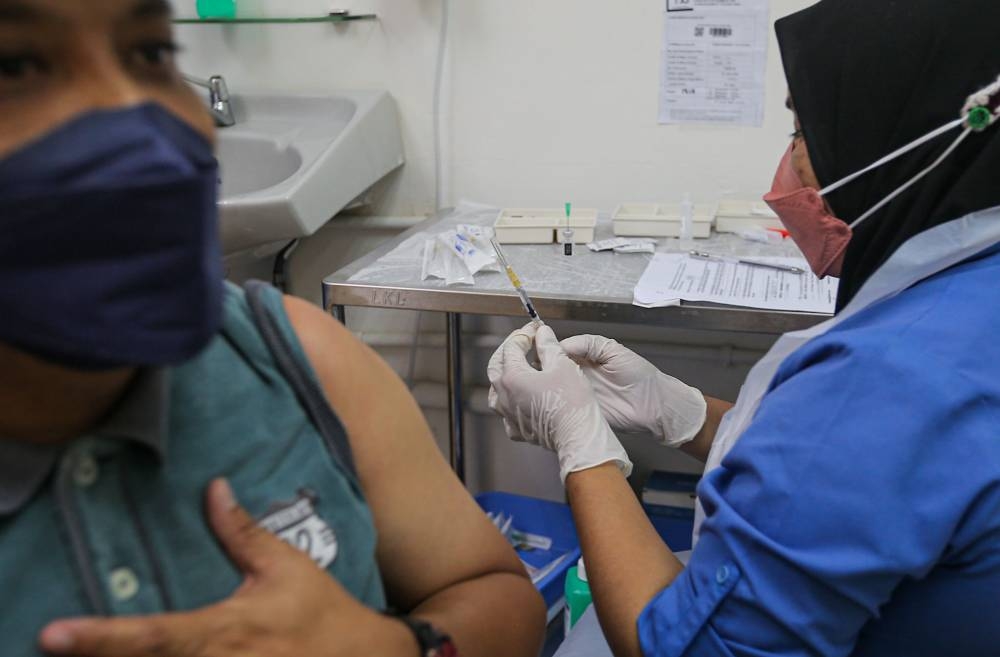JANUARY 11 — On this date in 2020, Covid-19 had still not reached Malaysian shores. But by late January, import cases arrived and in early February the first Malaysian case was recorded. The Health Ministry — then led by Khairy Jamaluddin — rolled out a nationwide vaccination campaign which saw considerable uptake amongst both citizens and foreigners.
Of course, such large-scale campaigns are never without hiccup: many complained about the sluggish and glitchy registration website for the opt-in AstraZeneca vaccine (although all million shots were swiftly snapped up). Later, the controversial national contact tracing app MySejahtera came under fire as questions rose regarding public procurement, data privacy and ownership.
Glitches in addressing an unprecedented global event are understandable, but two years on strong direction is more important than ever. It is imperative that the Health Ministry as well as state governments redouble efforts to encourage vaccinations given the ubiquitous nature of the virus, as well as ensuring these vaccinations accessible for all.
Currently an estimated 27.5 million people (slightly above 84 per cent of the nation’s population) have taken the first two vaccine doses while only 49.8 per cent have received their first booster. According to the new Health Minister Dr Zaliha Mustafa, only 1.9 per cent have taken the second dose despite additional shots being highly recommended by global health authorities as immune responses fade over time.
In order to encourage vaccine take-up, the government must learn from the previous hiccups and address them. In interviews, vaccine support volunteers from various organisations reported that some of the key barriers ranged from technological difficulties to fear of deportation amongst the migrant community.

During the initial vaccine campaign, there were demands that undocumented migrants “surrender” to the authorities to obtain the vaccine and that the United Nations Refugee Agency furnish the government with a list of registered refugees. This, of course, led to widespread fear of deportation or detention.
“The government first gave us the mandate to assist with vaccinating the bedridden. In September under the auspices of MoH we then expanded to migrant worker and refugee communities, working with NGOs such as Our Journey,” said Loo Juosie who was on the ground with Red Crescent in 2022.
Last year, Red Crescent mainly dealt with booster vaccine access and health outreach programmes while also working with MySejahtera, who overhauled their helpdesk, to troubleshoot tech issues.
“There was a huge digital gap at the time, especially as many were not familiar with how to use the MySejahtera app. Currently there are still refugees who haven’t even received their first dose. We can’t act as if everyone is already safe as there is still demand for both boosters and initial vaccinations.”
Joshua Soo of MySejahtera’s helpdesk reported that one common technical issue was that of vaccination centres (PPV) requiring assistance with uploading the serial numbers into the system.
Joshua also pulled duty at the World Trade Centre where AstraZeneca vaccinations were given, assisting those who needed translators or physical guidance through the facility. With MySejahtera being the only source of digital vaccine certificates required to move about freely, the helpdesk team also handled queries from NGOs representing refugees and migrant workers on how to access the app.
Migrant workers must remain a key component of any future vaccination efforts given they make up a large part of the workforce.
“It is incorrect to say that workers do not want to get vaccinated. They do. The question is how to make sure it is equitable,” said MySejahtera helpdesk agent Myichael Netto who, in March 2022, was part of a troubleshooting programme in Johor.
“The jobs that they perform are also integral to keeping Malaysia safe. In Johor we had a cleaning/sanitising company approach us, the manager and about 50 employees gave us their phones and passports so we could resolve all difficulties one by one.”
In an interview that focused on volunteer experiences during vaccination drives, medical student Nurul Izzah said that another challenge was that of refugees who had not yet received UN cards and therefore had no formal documentation to present.
“We worked with MySejahtera and the Health Ministry to cater to them as vaccine certificates were a requirement. We operated like a PPV but with more leniency, using community IDs and asking MySejahtera to accept them as valid documents.”
It is imperative that the Health Ministry keep up a robust vaccination programme as the world continues to reopen and further relax borders. While the Health Ministry is working to provide the public with bivalent vaccines, Minister Zaliha has encouraged the public to take the available monovalent booster shots and not wait.
The new Minister’s stand so far is encouraging, but her Ministry must continue working closely with grassroots groups to ensure that the most marginalised communities have continued access to Covid-19 vaccines, be it first healthcare contacts or booster shots.
* Tashny Sukumaran is a senior analyst with the Institute of Strategic and International Studies Malaysia. This article is part of a policy wish list series.
** This is the personal opinion of the writer or organisation and does not necessarily represent the views of Malay Mail.





















